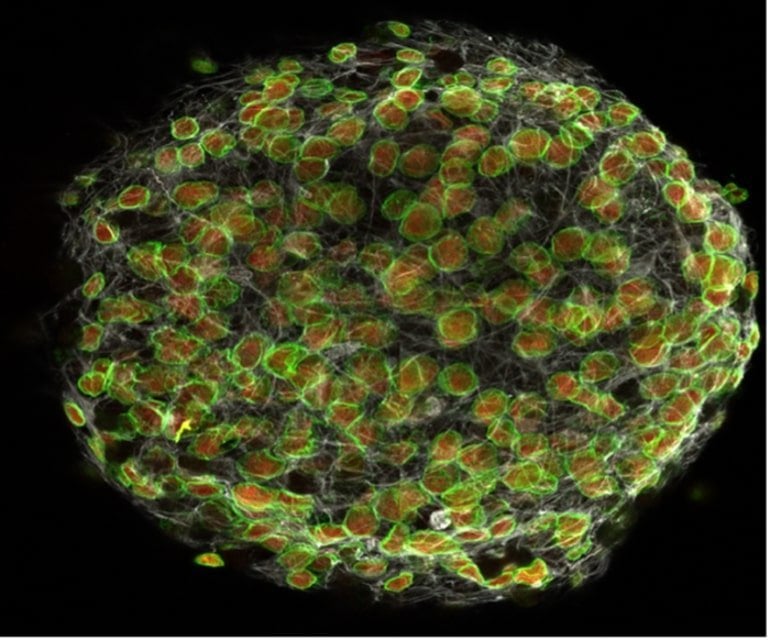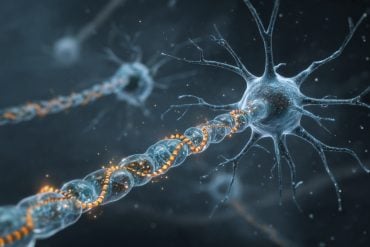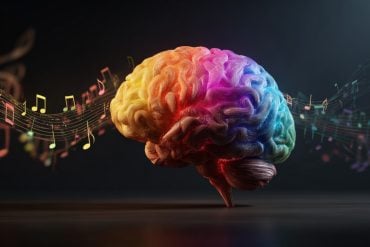Summary: In adults, levels of GDF11, a gene that is key to the regeneration of murine neural stem cells, are inversely related to depressive episodes. Administering the GDF11 proteins to aging mice reduced depressive states and improved cognition.
Source: Institut Pasteur
The process of aging is often related to the onset of cognitive decline, depression and memory loss. Scientists from the Institut Pasteur, CNRS and Inserm have discovered that administration of the GDF11 protein, which is known to regenerate murine neural stem cells, improves cognitive abilities and reduces the depressive state in aged mice.
They also demonstrated the mechanism of action of this protein in different mouse models. The scientists then investigated these results further in relation to depression, and showed that in humans, the levels of GDF11 are inversely related to depressive episodes.
The results of this study were published in the journal Nature Aging on February 2, 2023.
The process of aging is often related to the onset of neurological symptoms such as cognitive decline, memory loss or mood disorders such as depression. Previous studies have shown that the growth factor GDF11, a protein found in blood, has a beneficial effect on olfactory perception and on the generation of new cells in the brains of aged mice. The mechanism of action of GDF11 in the brain remained unknown.
Researchers from the Institut Pasteur, CNRS and Inserm have discovered that long-term administration of the GDF11 protein to aged mice improves their memory and significantly reduces behavioral disturbances related to depression, allowing them to return to a behavior similar to that seen in younger mice.
The scientists conducted further studies in different aged mouse models or mouse models with depression-like behavioral disorders and in vitro neuronal cultures, which enabled them to identify the molecular mechanism of action of GDF11.
They discovered that administration of GDF11 activates the natural process of intracellular cleaning, called “autophagy”, in the brain and the elimination of senescent cells. The GDF11 protein thus indirectly increases cell turnover in the hippocampus and restores neuronal activity.

To better understand the link between depressive disorders and the GDF11 protein in humans, scientists from the Institut Pasteur, CNRS and Inserm, in collaboration with scientists from McMaster University, quantified the protein in the blood serum of an international cohort of young patients with major depressive disorder.
They observed that GDF11 levels are significantly lower in these patients. Moreover, by measuring the levels of this protein at different stages, the scientists observed a fluctuation in the level depending on the depressive state.
“This work provides clinical evidence linking low blood levels of GDF11 to mood disorders in patients with depression,” said Lida Katsimpardi, a researcher in the Institut Pasteur’s Perception and Memory Unit, affiliated with Inserm at the Institut Necker-Enfants Malades, and co-last author of the study.
“In the future, this molecule could be used as a biomarker to diagnose depressive episodes. It could also serve as a therapeutic molecule for the treatment of cognitive and affective disorders,” she concludes.
About this depression and genetics research news
Author: Burlet-Parendel Anne
Source: Institut Pasteur
Contact: Burlet-Parendel Anne – Institut Pasteur
Image: The image is credited to Perception and Memory Unit – Institut Pasteur
Original Research: Open access.
“Systemic GDF11 attenuates depression-like phenotype in aged mice via stimulation of neuronal autophagy” by Carine Moigneu et al. Nature Aging
Abstract
Systemic GDF11 attenuates depression-like phenotype in aged mice via stimulation of neuronal autophagy
Cognitive decline and mood disorders increase in frequency with age. Many efforts are focused on the identification of molecules and pathways to treat these conditions.
Here, we demonstrate that systemic administration of growth differentiation factor 11 (GDF11) in aged mice improves memory and alleviates senescence and depression-like symptoms in a neurogenesis-independent manner.
Mechanistically, GDF11 acts directly on hippocampal neurons to enhance neuronal activity via stimulation of autophagy. Transcriptomic and biochemical analyses of these neurons reveal that GDF11 reduces the activity of mammalian target of rapamycin (mTOR), a master regulator of autophagy.
Using a murine model of corticosterone-induced depression-like phenotype, we also show that GDF11 attenuates the depressive-like behavior of young mice. Analysis of sera from young adults with major depressive disorder (MDD) reveals reduced GDF11 levels.
These findings identify mechanistic pathways related to GDF11 action in the brain and uncover an unknown role for GDF11 as an antidepressant candidate and biomarker.






